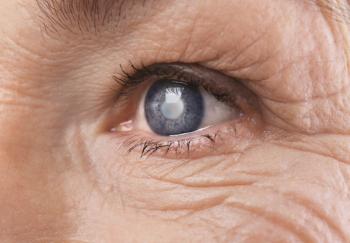
Taxane-based Chemo Associated with Ocular Adverse Events
Patients who received the chemotherapies paclitaxel and docetaxel were at an increased risk of adverse events of the eye.
Investigators have found an association between the use of paclitaxel and docetaxel chemotherapy and side effects related to the eyes compared with women using tamoxifen. The side effects include epiphora, cystoid macular edema (CME), and optic neuropathy, according to a recent
Paclitaxel and docetaxel are used to treat patients with breast, lung, ovarian cancer, gastric, and head and neck cancer, as well as Kaposi's sarcoma.
“Our study showed that although rare, taxane chemotherapy drugs can increase the risk of ocular adverse events such as cystoid macular edema, optic neuropathy, and epiphora,” lead investigators Mohit Sodhi, M.D., faculty of medicine at the University of British Columbia, told Managed Healthcare Executive. “It is important that both oncologists and ophthalmologists are aware of these side effects when counselling patients on the risks of taxane chemotherapy.” Sodhi is also chairman, CEO, and co-founder of the YNOTFORTOTS Society.
Cystoid macular edema, a build-up of fluid in the macula, and optic neuropathy, damage to the optic nerve, can lead to decreased vision. Epiphora, or excessive tearing, is a debilitating condition that may be irreversible and affects quality of life.
Investigators wanted to quantify the risk of these ocular adverse events. They noted that most of the data on these events have been from case reports.Investigators conducted a retrospective cohort study using PharMetrics Plus database, which captures health information of more than 150 million enrollees in the United States.
The study team created a cohort of women with cancer from 2006 to 2020 who were new users of taxane-based chemotherapy (docetaxel or paclitaxel) and new users of tamoxifen as controls. They chose tamoxifen was as a reference drug because it is used for similar indications (breast cancer) as taxanes, and it has shown to increase the risk of cystoid macular edema and optic neuropathy, but not epiphora.
Among the 18,219 users in the epiphora analysis and optic neuropathy analysis, there were 1,824 taxane users (paclitaxel and docetaxel) and 16,395 tamoxifen users. The adjusted hazard ratio was 5.15. For optic neuropathy, the crude and the adjusted hazard ratio was 4.44. Among the 18,433 users in the cystoid macular edema analysis, there were 1,909 taxane users (paclitaxel and docetaxel) and 16,524 tamoxifen users.
“Our study results are consistent with published case reports that have suggested an increase in the risk of these three important ocular adverse event,” investigators wrote. “The survival benefits of taxane-based chemotherapeutic agents have made these agents an integral part of drug regimens for many cancers, especially breast, ovarian, and uterine cancers… Results from this study can better inform oncologists and ophthalmologists on the risk of these three ocular
outcomes, and where possible, allow them to choose alternative agents.”
One limitation of the study, investigators said, is that it is possible for other chemotherapy agents combined with taxanes to also cause optic neuropathy but they did not assess other therapies for their risk of ocular event. Additionally, the study looked only at women using taxanes, and investigators used use claims data and did not have access to patients’ medical records for outcome validation.
Newsletter
Get the latest industry news, event updates, and more from Managed healthcare Executive.

























